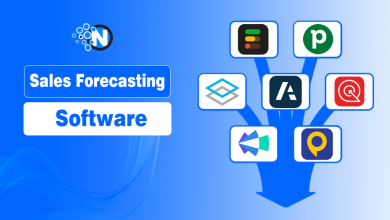How To Strengthen Your Cloud Security For 2023

Cloud computing has provided significant advantages and advancements to businesses in terms of accessibility, efficiency, and productivity.
In fact, over 70% of business leaders stated that the cloud has helped them stay competitive by making their apps and services become readily available and improving business performance while lowering overall IT cost.
Unfortunately, with all the benefits that the cloud provides, it does bring with it a host of new security issues. In fact, statistics revealed that up to 80% of businesses experienced a cloud security breach.
Thus, businesses need to start leveling up their cloud security game. To help you get started, this article provides several tips to strengthen cloud security and minimize the risk of breaches in 2023.
- Choose The Right Provider
At its core, the very foundation of cloud security best practices is built on choosing the right service provider. You’d want to pick a cloud service provider that delivers the best in-built security protocols and complies with the highest levels of industry standards and best practices.
The mark of a trusted cloud service provider is reflected in the range of security certifications and compliance they hold. And good providers will make these certifications publicly available to assure customers. For instance, leading providers such as Amazon Web Services and Google Cloud offer transparent access where you can confirm their security certifications and compliance.
- Partner With The Experts
Outsourcing an IT firm and hiring experts specialized in cloud security services is one of the best ways to enhance the security of your cloud infrastructure. There are numerous IT companies providing solutions or services specifically designed to support and strengthen your cloud security.
If your current internal IT department doesn’t have an expert in the cloud or if your current security solutions don’t support a cloud framework, then you can always hire outside help. Outsourcing an expert in cloud computing can help you plan strategies and enforce cloud security policies for your company.
What’s more, these companies have the necessary tools and solutions to monitor and manage your cloud infrastructure.
- Take Passwords More Seriously
A strong password policy is the best practice regardless of the service you’re accessing. It is one of your first defenses against unauthorized access.
In general, a strong password should have at least one lowercase letter, one uppercase letter, one symbol, and one number, with a minimum of 14 characters. A password requirement like this can stop users from creating simple and easy-to-hack passwords across multiple devices, creating a strong defense against brute-force attacks.
Also, make sure to have a mandatory password change every 90 days. Make sure to set your system to remember the last 24 passwords to prevent users from re-using old passwords.

- Implement Multi-Factor Authentication
In addition to strong passwords, you can add another layer of security to your cloud infrastructure by using multi-factor authentication (MFA). MFA is a type of authentication method that requires a user to add another verification factor or two to authenticate their identity and gain access.
In general, the most common MFA method used are one-time passwords (OTPs) which are 4 to 6-digit codes that users receive via email, SMS, or mobile apps. These codes are generated every time an authentication request is submitted. From its name, OTPs are only valid for one session, typically lasting only a few minutes.
Aside from OTPs, you can also use authentication methods such as personal security questions, biometrics, and access badges to authenticate user identity. Ideally, you’d want to use two or more authentication methods to further enhance your cloud infrastructure’s security.
- Manage User Access
Not all employees need access to every piece of the file, data, software, or application in your cloud infrastructure. Setting proper levels of authorization and strict control on user access can help prevent unauthorized access and use of sensitive data and platforms in the cloud. Doing so can ensure that each employee can only view the data and user applications that are necessary to do their job.
It helps prevent an employee from accidentally accessing and tampering with sensitive data. Also, it helps protect your cloud system from hackers who may have stolen an employee’s credentials. What’s more, strict user access control is a requirement by most regulatory compliance standards such as General Data Protection Regulation (GDPR) and Health Insurance Portability and Accountability Act (HIPAA).
Experts recommend that you start from a place of zero trust. Zero-trust cloud security means that no one is trusted from inside or outside the network. Proper authentication and verification are needed from everyone trying to access a resource in the cloud.
Also, to avoid complexity, it’s best to create well-defined user groups with assigned roles, providing access to chosen cloud resources. Then, you can add users directly to these groups instead of customizing access for each user.
Takeaway
As businesses rely more and more on the cloud for their operations, cloud security has become a pressing issue. That said, by following the above tips and strategies, you can significantly strengthen your cloud infrastructure’s security and reduce your security risk, so you can take full advantage of its benefits without worries.



